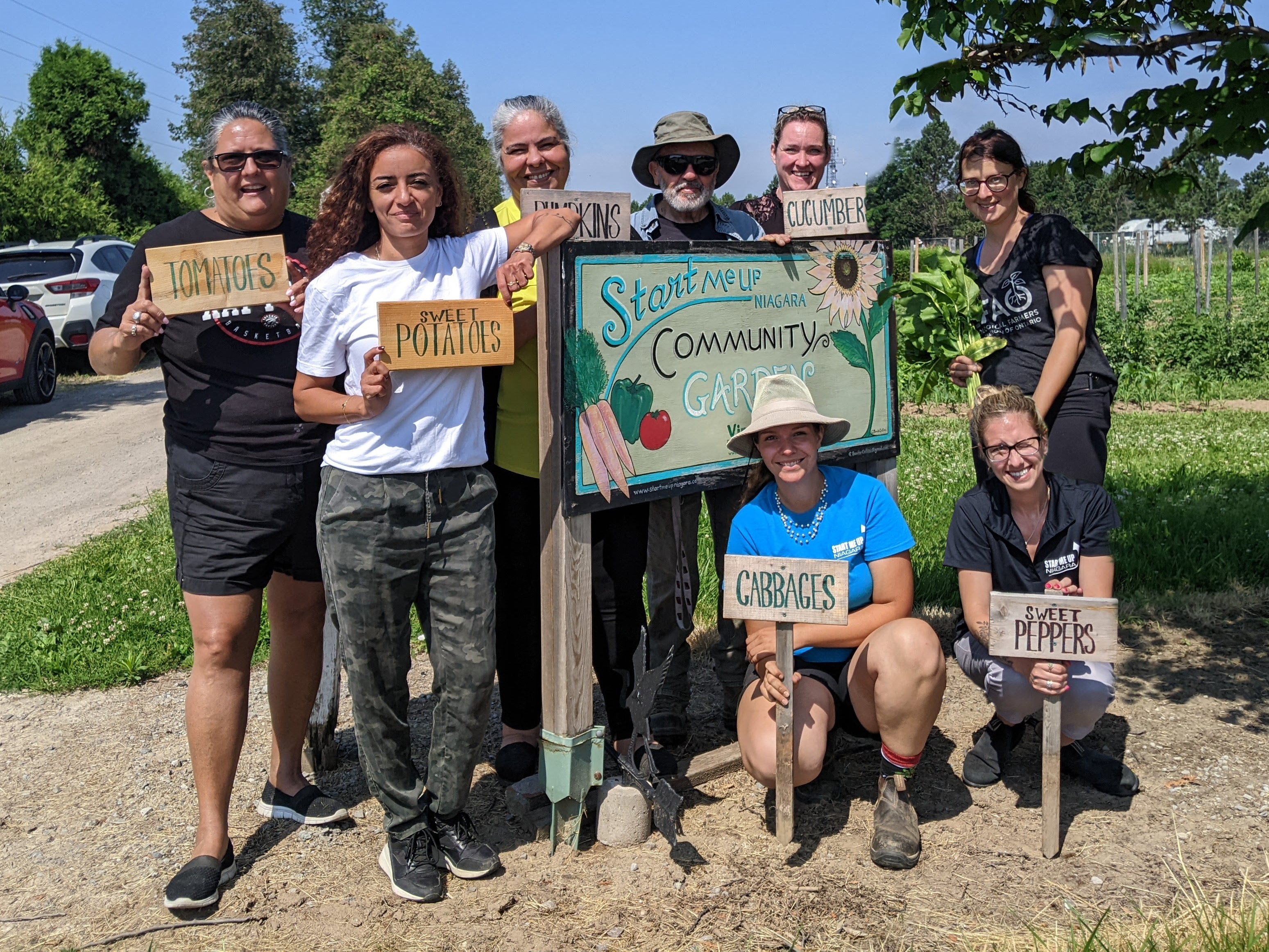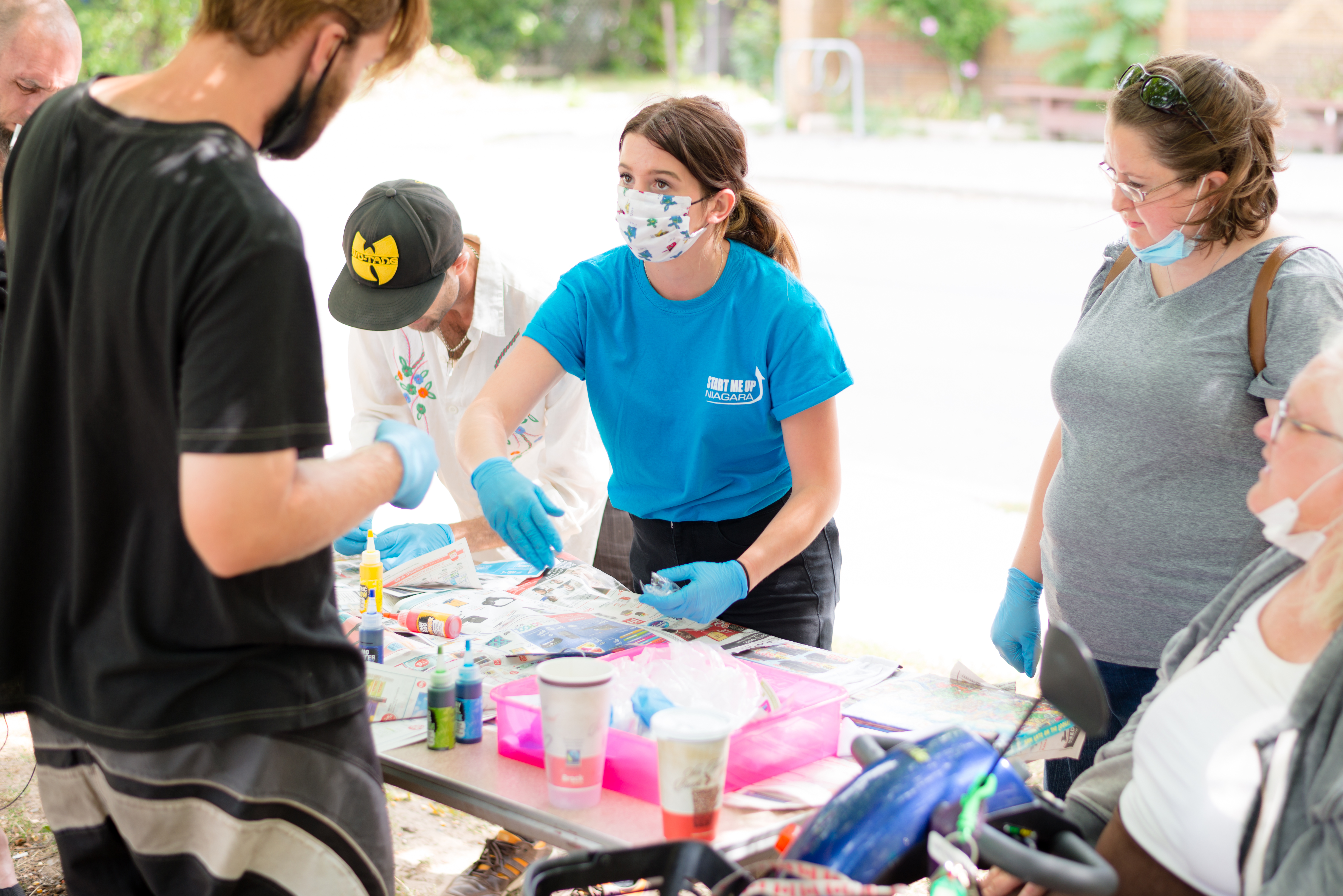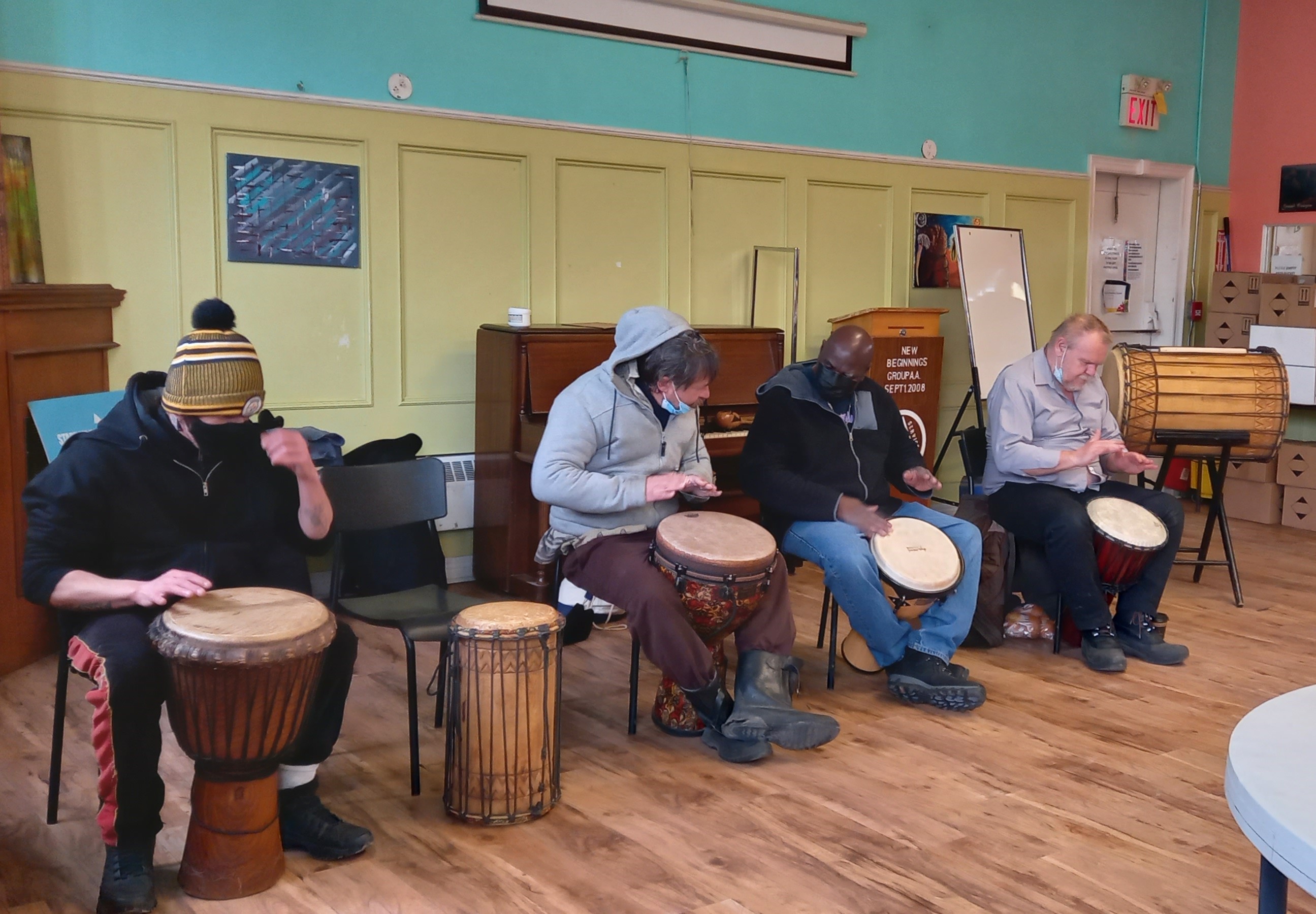From our humble roots to a wide variety of programming SMUN today has a rich history of service.
In the beginning, there was a three-year pilot project located in four cities across Canada that were funded by the federal Opportunities Fund through the National Network of Mental Health (NNMH). Their purpose was to increase individuals' low participation rate with mental health issues by offering specialized self-employment services that would combine business expertise and mental health supports. St. Catharines was chosen as one site by the NNMH.
They met with the advisory committee of Innovative Enterprises, a consumer survivor organization with a history of starting social enterprises, to plan for opening the project. The Start Me Up Management Advisory Committee's first meeting was held on October 15, 1998, with the target date for an opening set for March 29, 1999. They set up terms of reference for the committee, established a work plan, and got to work. They established operating guidelines that included the participation of mental health consumer survivors on the advisory committee and as employees. Start Me Up had three years to develop this new program, achieve the project's goals, and become financially sustainable.
Start Me Up opened on schedule in a bright, fully-equipped office at 288 St. Paul Street with a new staff person hired because she had community connections, entrepreneurial experience and was not connected to the formal mental health and social work sectors.
A course outline and a list of possible participants were provided and helped get the project underway. Six brave souls with varying business ideas and mental health issues signed up for the four-week business development course. Presenters with business expertise delivered information daily. Unfortunately, starting a business with little or no capital seemed impossible to them. They had difficulty recognizing participant strengths and assets. The business ideas that ranged from tax auditing to a travelling nanny required additional support—varying levels of needed mental health accommodations around group participation and timelines. However, these participants who lived with incomes below the poverty line were experts at finding ways to solve daily life problems.

Their common link was the impact of poverty on their lives. Precarious housing. Precarious health. Precarious employment. Precarious everything! Negative consequences on their health, relationships, community participation, and employment were evident and discussed openly. They needed income and wanted to get their businesses started, and if that did not work, they would look for a job.
The one-size-fits-all course did not work. Another approach would be needed. Soon two staff were added to meet the increasing number coming for services. These early days defined a model of individualized service, recognized strengths, acknowledged the impact of poverty, provided appropriate practical support, worked with participants to achieve their goals, and set their own definitions of success. The individual is at the centre of its services.

Start Me Up Niagara was incorporated as a not-for-profit organization in the fall of 2000 and received charitable status shortly after that. This made it possible to develop new funding sources, expand programming when the pilot project ended. It opened a second location at 234 St. Paul Street, Work Action Centre. Funded by the federal Homelessness Initiative, it offered a woodworking shop, a storefront for crafts, a kitchen and weekend lunches for people with no other place to go.
It was a hub of activity until 2006, when its lease ended, and no additional funding could be found. It was a sombre day.
Simultaneously, the employment programs were being reorganized at both the federal and provincial levels causing a severe cash-flow problem for Start me Up Niagara's employment programs that now offered self-employment and traditional employment programming cross-disability groups.
No income for six months stretched our creativity and resilience to new lengths. 'Everyone not being paid but still working, rent was forgiven, and the Board of Directors holding on.' It was a terrible time, but it actually gained us the respect of the community, funders and participants who foolishly thought Start Me Up's time had run out.
With a new model for funding in place, SMUN became a fee-for-service provider for the Ontario Disability Support Program. This enabled it to rehire and increase staff, all of whom were paid! With several other proposals approved, a pale version of the Work Action Centre opened days at 'the Swamp.' It became the place to go for people without housing.

Start Me Up Niagara offers services and programs to individuals who face significant life challenges to provide them with opportunities to stabilize, participate and grow.
Learn More
SMUN's Board engaged a consultant to complete a strategic plan. Its first goal was to move both program locations into one building. With 'the Swamp' being sold and the lease at 288 St. Paul Street expiring, the time was right for a move.
In 2009 Start Me Up Niagara moved to 17 Gale Crescent, leasing then purchasing the building with a generous donor's help. This was a very significant move. Located in a priority neighbourhood, it received funding through the Niagara Prosperity Initiative and began offering supports to address many social determinants for health. Within a year, the number using its services doubled.
With the rapid growth of employment and tight space at 17, the dream of reopening the Work Action Centre was realized. It would be a place that would be all about earning income. It offers traditional self-employment support programs, a bicycle shop, a creative space for artists, a storefront, a computer lab and a commercial kitchen as part of SMUN's Green Garden project.
Start Me Up Niagara has been closely connected to the issue of homelessness. It is contracted by the Region of Niagara to operate a seasonal emergency overnight shelter at Westminster United Church modelled on the Out of the Cold program. It will begin offering this same service in Niagara Falls at St Andrews United Church in November 2020.
Partnerships with other agencies provide complementary services on site. Community connections are an essential source of volunteers, in-kind and monetary donations. Long-term relationships are crucial to success.
Its participant pathway STABILIZE | PARTICIPATE | GROW supports its vision of a community where everyone belongs and its mission to increase the level of self-sufficiency for people with mental health issues and those lacking the necessary social determinants of health by providing opportunities that improve health, increase the level of community integration and support employment.
